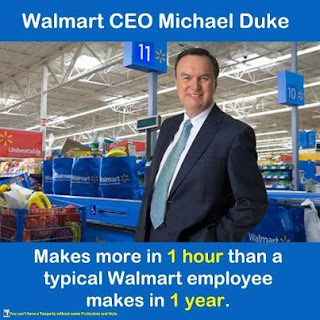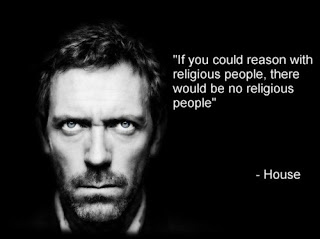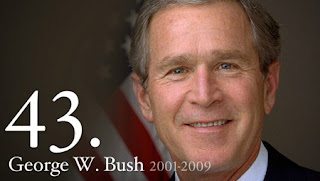So today while on Facebook I read a status about how someone I know hates capitalism. I shook my head in disappointment even though no one would see me and thought to myself, this isn't capitalism. With capitalism, corporations and banks are not so heavily protected. With capitalism, your ideas do not belong to the company you work for, the belong to you. So I found an article on forbes
Capitalism Isn't Corporatism or Cronyism
From: Forbes.com
Capitalism is the greatest socio-economic system in human history, because it’s so moral and so productive – the two features so essential to human survival and flourishing. It’s moral because it enshrines and fosters rationality and self-interest – “enlightened greed,” if you will – the two key virtues we all must consciously adopt and practice if we’re to pursue and attain life and love, health and wealth, adventure and inspiration. It produces not only material-economic abundance but the aesthetic values seen in the arts and entertainment.

But what is capitalism, exactly? How do we know it when we see it or have it – or when we haven’t, or don’t?
These aren’t easily-answered questions, because for more than a century capitalism has had more critics than champions, and because the critics have given biased or bigoted portrayals of what they feel is a demonic system. These critics despise capitalism’s root ethic (self-interest) as “evil” and then blithely presume the system harms human beings or sabotages societal peace and prosperity. Anti-capitalist prejudice has been perpetuated for decades by parents, teachers and preachers alike, who claim that to benefit yourself (egoism) is bad, but to benefit and serve others, especially at our own expense or sacrifice (altruism, or “other-ism”) is good – that it’s better to give than receive, to be our “brother’s keeper,” to serve or suffer rather than profit or enjoy. In truth, capitalism, the free society, means people trade value-for-value to
mutually beneficial gain.
Historically, capitalism is only about 250 years old – a mere flick of the clock hand relative to mankind’s total time on earth so far (roughly 200,000 years, and only 15,000 years in the Americas). Capitalism arose during the Renaissance (1500s-1600s) and Enlightenment (1700s), which entailed a re-birth of reason, self-confidence, culture, and commerce – in short, the pursuit of one’s own personal happiness. This was in sharp contrast to what had preceded it for a millennium: zeal and faith, superstition, ignorance, oppression, torture, and economic poverty, imposed by church and state alike, amid religious Medievalism and the Dark Age. Capitalism has been co-extant with the Scientific Revolution, the Industrial Revolution and the Political Revolution, the last of which was realized in the U.S. Constitution (1787), which soon also abolished slavery.
The question of “what is capitalism,” exactly – and likewise, regarding its main rivals, what is “statism,” “socialism,” “social democracy,” “communism,” “fascism,” or “corporatism” – shouldn’t be a matter of mere semantics. These are real political systems affecting real people, whether for good or ill. Political systems are free, un-free and oppressive, or mixed. We cannot legitimately make up terms or equivocate (i.e., switch meanings from one argument to the next, to evade or twist the logic) about these political systems.
Capitalism has been blamed for the Great Recession of 2007-2009 and for the financial crisis and bailouts of 2008, but it’s not “capitalism” but the mixed economy and corporatism-cronyism that did it. We’ve had corporatism in the U.S. for roughly the past century, and it’s getting worse over time; it’s also the system we’ve seen in Europe since at least the time of Germany’s Otto von Bismarck, who launched the womb-to-tomb welfare state in the 1870s. In the interim, of course, Europe also imposed communism, socialism and fascism. The result, we know, was mass murder, world war, and the continent-wide destruction of wealth.
Capitalism’s greatest intellectual champion, Ayn Rand (1905-1982), once defined it as “a social system based on the recognition of individual rights, including property rights, in which all property is privately owned.” This recognition of genuine rights (not “rights” to force others to get us what we wish) is all-crucial and it has a distinctive moral foundation, according to Rand:
The recognition of individual rights entails the banishment of physical force from human relationships: basically, rights can be violated only by means of force. In a capitalist society, no man or group may initiate the use of physical force against others. The only function of the government, in such a society, is the task of protecting man’s rights, i.e., the task of protecting him from physical force; the government acts as the agent of man’s right of self-defense, and may use force only in retaliation and only against those who initiate its use; thus the government is the means of placing the retaliatory use of force under objective control.” “The moral justification of capitalism does not lie in the altruist claim that it represents the best way to achieve “the common good.” It is true that capitalism does—if that catch-phrase has any meaning—but this is merely a secondary consequence. The moral justification of capitalism lies in the fact that it is the only system consonant with man’s rational nature, that it protects man’s survival qua man, and that its ruling principle is: justice.
Elaborating, Rand explained in Capitalism: The Unknown Ideal (1966) that historically, politically, economically, and morally, capitalism was the superior socio-economic system, yet also how, for decades, its achievements and virtues had been hidden and buried deliberately in an avalanche of prejudice, distortion, and falsehood. Rand argued that capitalism is a moral ideal yet also was made real, and to the greatest extent, in America in the 19th century, especially during the Gilded Age (1865-1890). Thus she called the U.S. “the greatest, the noblest and, in its original founding principles, the only moral country in the history of the world.”
Most people today can’t even fathom (let alone endorse or advocate) a government that’s strictly limited to protecting each person’s right to life, liberty, property, and the pursuit of happiness. They assume a government must be controlled by some pressure group or another, in a “zero-sum game” of unavoidable exploitation – that “power” is ubiquitous and ineradicable, while the only question is who wields it and whose head gets bashed in. They say “timocracy” is rule by the military for the sole benefit of the military, that “plutocracy” is rule by the rich for the sole sake of the rich, that “socialism” is rule by labor for the sake only of labor, that “capitalism” is rule by capitalists (or
Wall Street bankers) for the singular benefit of capitalists, and that “democracy” is rule by people (i.e., the majority) at the expense of the minority (true!).
Notice, by this bizarre approach – with its hidden premise that there can be no harmony of interests among people – that no space is permitted for a political system of liberty, justice and equality (for all) before the law. Why not? Call such a system what you will (semantics aren’t the issue), yet ask: why isn’t this one of the possible systems to choose from? Why is it not an option? Indeed, given what we know from history and human nature, why isn’t it the only system worth adopting? Today’s political “thinkers” can only imagine a government that’s controlled by one distinct group or another, which then systematically oppresses its rivals.

In fact,
capitalism is the system of rights, liberty, civility, peace and non-sacrificial prosperity; it’s not the system of government that unjustly favors capitalists at others’ expense. [i.e. Bailing out wall street and leaving main street hanging] It provides a level legal playing field plus officials who serve us as low-profile referees (not arbitrary rule-makers or score-changers). To be sure, capitalism also entails inequality – of ambition, talent, income, or wealth – because that’s how individuals (and firms) really are; they’re unique, not clones or inter-changeable parts, as the egalitarians claim. Capitalism is the political system which ensures that innocent “economic power” (i.e., the power to produce) isn’t mixed with force to become invalid political power (i.e., the power to loot); it’s the system that separates business and state, for the same good reason that it also makes sure to separate church and state.
Neither of the two recent political movements – “Occupy Wall Street” or the “Tea Party” – seem to fully grasp this.
Yes, there’s an alternative system that does entail the government unjustly ruling business and government, in turn, improperly controlled by business for business’s exclusive benefit (whether by subsidies, special favors, monopolies and franchises, tax breaks, or bailouts), even as it nominally still permits private property holdings: it’s called “corporatism” (sometimes, synonymously, “cronyism” or “fascism”). Corporatism was the system originated almost a century ago by the American “Progressives,” and later by Mussolini in Italy, Hitler in Germany, and Roosevelt in the U.S. (see his 1933 National Recovery Act, struck down by the Supreme Court in 1935 as unconstitutional because it was so corporatist). Corporatism goes hand-in-hand with statism, with abandonment of the fully free economy and adoption of the welfare-warfare state. Yet while many oppose cronyism, corporate welfare, and bailouts, they also endorse handouts to almost everyone else, including to the politically-valuable cronies so easily found among today’s labor union leaders, “green” companies, under-water homeowners, over-indebted college students, and war-happy munitions makers.
Those who speak of “crony capitalism” use a smear, to blur distinctions and blame innocents. But let’s keep facts (and terms) perfectly straight. Let’s not equivocate. Above all let’s acknowledge that the real culprits in corporatism are precisely those people who pretend to rail against it: the likes of Ralph Nader, Robert Reich,
Barack Obama, and their friends in “Occupy Wall Street.” They all want bigger, more intrusive government in our lives; they are all full-throated pushers of the welfare state and “social democracy” (socialism by vote). Yet they whine against the undue influence of big business and corporations (and their cash) on political campaigns, lobbying, and policy-making. If government is going to intervene to redirect literally trillions of dollars of income and wealth from natural flows into artificial ones, it’s positively inviting and fostering cronyism. The closet corporatists claim to want to get money out of politics, but they won’t dare get politics out of money-making; they claim that capitalists and bankers are to blame for our many woes, but they won’t dare advocate capitalism, the only system that specifically precludes favors to capitalists (or any other sub-group). They deride influence-peddling but demand ever-more intense forms of government influence.
In the world today (and for most of the past century) we haven’t had capitalism per se but instead the welfare state and corporatism; we’ve had what are commonly called “mixed economies,” those with some remaining vestiges of capitalist freedom but also many (and fast-proliferating) controls and taxes. Obfuscations about capitalism’s real nature and the blurring of distinctions between the terms capitalism and corporatism make it difficult for most people to discern cause and effect whenever some disaster or corruption arises, and thus it’s difficult to assign proper blame or achieve a lasting remedy. Yet people should always remind themselves that freedom breeds peace, justice, and prosperity, while coercion breeds violence, exploitation and poverty. When a mixed economy fails, it’s not its capitalist aspect that fails – unless you believe freedom itself fails.

Whenever we observe indisputable socio-economic disasters or injustices – in the best recent example, the Great Recession of 2007-2009, the 2008 financial crisis (and TARP bailouts), the sub-prime loan debacle,
Fannie Mae and
Freddie Mac, underwater mortgages and defaults, persistently high jobless rates – we shouldn’t waste any time disputing whether they were caused by the freedom or rather the coercion part of the mixed economy. They were caused by the coercive element, not the free one (or from “deregulation”) – and that’s where all remedies must lie. We need more freedoms and less controls. We must identify, locate, and excise all those many government agencies, subsidies, taxes, and regulations that violate our liberties and rights, those that transform officials from mere referees on life’s field into savages running amuck, altering rules and redistributing well-earned points – and thereby wrecking an otherwise perfectly fine and fun game.
 As Black Friday approaches many of us in the retail sector dread the onslaught of nasty customers and time away from our families. Many companies are forcing workers to come in ON "Thanksgiving" day and one is even OPENING ON "Thanksgiving".
As Black Friday approaches many of us in the retail sector dread the onslaught of nasty customers and time away from our families. Many companies are forcing workers to come in ON "Thanksgiving" day and one is even OPENING ON "Thanksgiving".
































